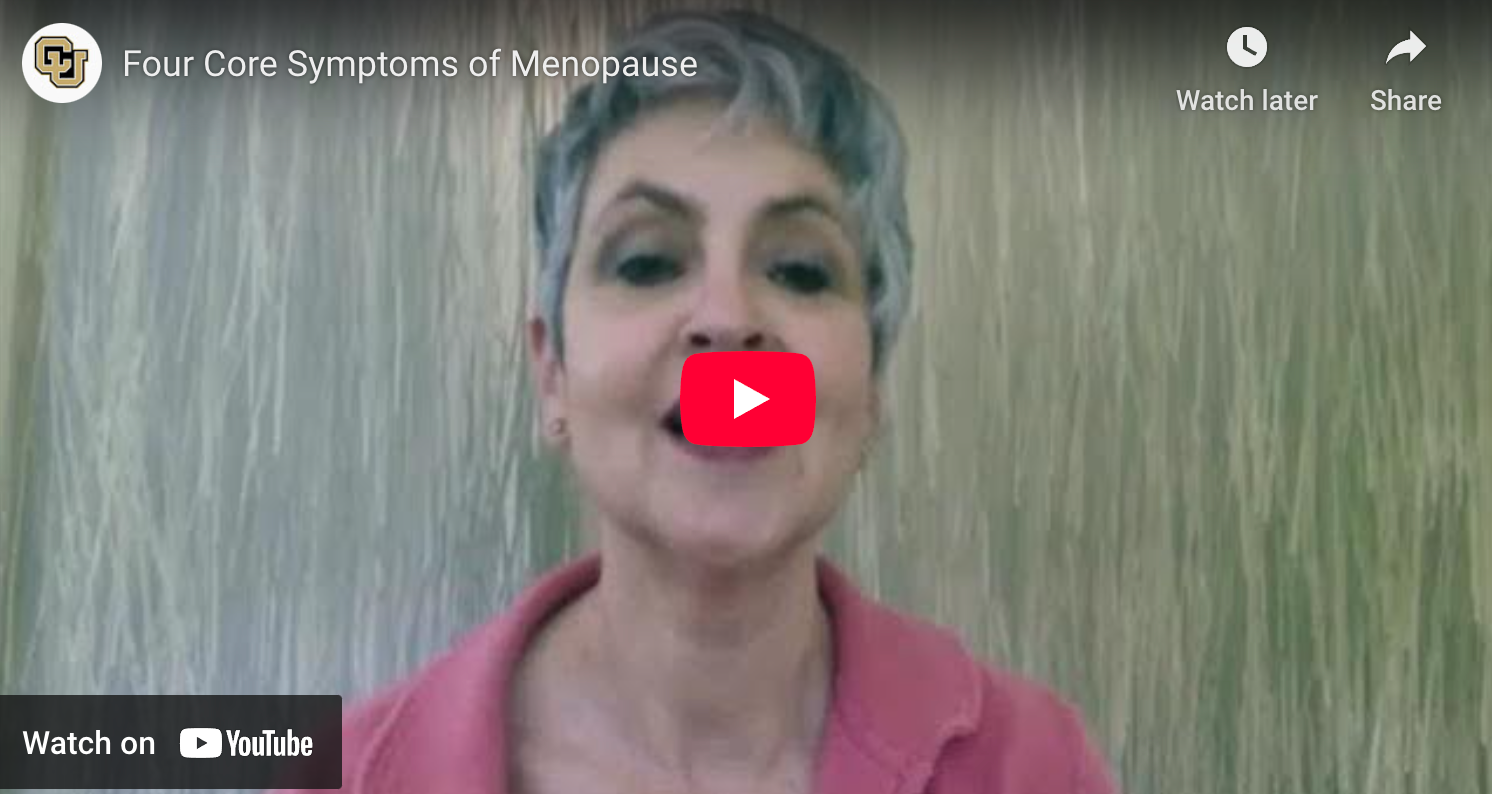Greetings, I’m Nanette Santoro, Professor and E. Stewart Taylor Chair of OB-GYN at the University of Colorado School of Medicine. A lot of my expertise and clinical practice has been devoted to menopause.
What I’d like to talk about today is, what are the core symptoms of menopause, and when do they start and when do they end? I call them The Core Four, and if you’re a Yankee fan like I am, you’ll know that the Core Four really are Derek Jeter, Andy Pettitte, Mariano Rivera and Jorge Posada. But if you’re not a Yankee fan, that’s okay too; I like the Rockies.
The four symptoms I’m talking about with menopause are:
- Hot flashes and night sweats.
- Vaginal dryness or painful intercourse.
- Difficulties with sleep.
- Difficulties with moods—adverse moods, sometimes depression or anxiety.
Hot flashes and night sweats
Hot flashes and night sweats are the most common symptom, and up to 85 percent of women going through menopause will report experiencing these at one time or another. They can begin as much as 15 years prior to menopause and typically will start around the time of the menstrual period.
They tend to be worse right at that year around which a woman has her final menstrual period. That year before and up until four or five years afterward seem to be the worse time. And that’s really the time most women will seek medical help if their hot flashes are severe.
Severe hot flashes cause sweating, they can cause embarrassment, they can happen without warning. And the night sweats can cause nighttime awakening, which interferes with sleep.
By eight years after menopause, only about 15 percent of women still have hot flashes. But if you are one of those, a shout out to you that you need treatment and we won’t forget you.
But that is a symptom that, for the most part, goes away, so many women will wait and see. My advice to you is that if they are really severe and you have trouble sleeping, you may want to try treatment—and not everything has to be hormones, either.
Vaginal dryness and painful intercourse
The second symptom is vaginal dryness or painful intercourse and that happens to about a quarter of women, mostly in the later part of menopause transition when women are skipping many periods. They go three to four months at a time without any bleeding and estrogen levels are low.
Unlike hot flashes, vaginal dryness symptoms do not go away over time. They can stay the same or get worse, so often they need treatment. So if over the counter medications aren’t working, many women will choose to try some treatment. And again, we now have treatments other than hormones to treat this annoying symptom.
Difficulty with sleep
Poor sleep is often caused by night sweats. About a third of women will experience a worsening of their sleep around the time of their menstrual period, even before they start skipping cycles and entering that menopause transition.
There’s not good evidence that specific menopause treatments or hormones are that effective for sleep in all women, but for some women they can help. And for others, sleep hygiene or sleep aids may be needed.
Adverse moods
The last symptom of adverse mood seems to occur to women most commonly in that year right prior to the end of their menstrual periods. This is what we call the late transition, when periods are few and far between.
Women who have not previously been depressed are also at risk. Up to a quarter of women will feel some depressive symptoms, but a smaller number will actually have an episode of major depression.
So if you do feel unaccountably sad while your menstrual periods are ending, it could be your hormones giving you a rough ride. And again, this is a good time to seek treatment.
I hope I’ve clarified for you what some of the things to expect are. The good thing about mood is that it improves after the menopause transition is over, but many women may not choose to ride that one out.
Related reading: Menopause & Anxiety: Connections, Signs, & How to Cope

